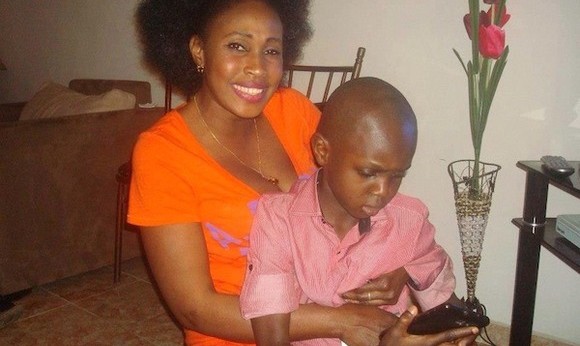The Problem With Lip Service Around Women’s Empowerment
03.23.2015 Aissata M.B. Camara

I have a universal question: Do women’s lives really matter?
The answer to this question depends on where you are in the world. If you are in the Republic of Guinea, no, women’s lives do not matter. If you are the husband, child, or the family member of Salematou Camara, women’s lives do not matter. If you are Salematou Camara, your life really does not matter.
Who is Salematou Camara? To many, she is no one. To me and people who care about women’s rights, she is the symbol of our failure to act quickly and to do what is necessary to ensure women do not lose their lives while giving birth. She is my personal reminder that the fight for women’s access to adequate and free healthcare is still ongoing.
Giving birth in western society is a time for happiness, baby showers and cute pictures on social media. For many women in countries like the Republic of Guinea, it is a time of fear, stress, and isolation.
This was true for Salematou, a young Guinean woman who went into labor on the night of Friday, February 27th , 2015. Her husband Aboubacar took her to Ignace Deen, one of the two largest hospitals in Conakry. This story of happiness became a tragedy when the hospital staff turned Salematou and her husband away when they arrived seeking medical care. The couple was told to go elsewhere because they could not be admitted. Still in labor, Salematou and her husband travelled by taxi across the dark city of Conakry to Donka Hospital. Upon arrival there, the staff also turned them away shattering their hopes of a safe delivery.
Tired and in pain, Salematou sat on the hospital floor and proceeded to give birth while her husband continued to beg for help. The screams of the couple and crowd of onlookers finally prompted the hospital staff to react, but they were too late. Salematou had lost too much blood and died Saturday morning. She left behind her newborn child, two other children and a grieving husband.
Now, I ask you again, do women’s lives really matter? If it did, Salematou would still be alive today and her children wouldn’t have to grow up without their mother. The fact is that she is among the 800 women who die everyday across the world while giving birth, due to lack of appropriate access to medical care. Reporters in Guinea wrote that Salematou’s story was neither surprising nor unique because these incidents occur often in the country.
Guinea is ranked 13th worldwide in maternal mortality and the country is struggling to free itself from the worst Ebola epidemic in history, which claimed 2,170 lives and severely weakened the fragile health system. Ebola has also affected women’s capacity to access hospitals, due to fears of contamination and limited resources.
My reaction was different. I had a Déjà vu moment resulting in feelings of numbness, pain and anger. This is because Salematou’s story brought back the memory of my nephew Mohamed’s mother, Maimouna. In 2013, Mai, as we affectionately called her, also died during childbirth in Guinea. Her death marked me forever.
You see, I have attended the marches, international meetings, and high-level U.N. conferences for many years advocating for the rights of women and girls and that of ultra-poor people in general. But this year is different. This month is different. The lip service being given to women’s empowerment without tangible actions is harder to accept as I participate in the 59th Commission on the Status of Women at the United Nations. Every time I hear the statistics, I hurt because I know that more women are dying, and I remember the women like Mai and Salematou who have already lost their lives. It also affects me because my nephew and his siblings, like Salematou’s children, will never know their mother.
As an activist and a woman, I am not taking away from the great advancements made to empower and protect women. But it is NOT enough. There are easy, affordable, and accessible solutions that can save women’s lives.
My organization, There Is No Limit Foundation, has proven this. We started the Mai Health for All Project aimed at increasing ultra-poor people’s access to quality health care in 2014. Through the Project, we donated 15 electronic hospital quality beds to Donka Hospital on March 9th 2015 and are sending 36 additional beds at the end of this month. We are also working on providing training to healthcare workers. Fifty-one beds might sound small, but these beds can make a difference in reducing the instances of stories like those of Mai and Salematou.
Now, I ask you again, do women’s lives really matter? If your answer is yes, play your part by engaging in the work to reduce maternal mortality. Women can no longer wait for trickle down policies and funding.
We couldn’t save Mai and Salematou, but we can save those women who are still here.
—
Originally posted on thetoolbox.org: https://www.thetoolbox.org/articles/2541-the-problem-with-lip-service-around-women-s-empowerment#.VRB_WVzmH8k